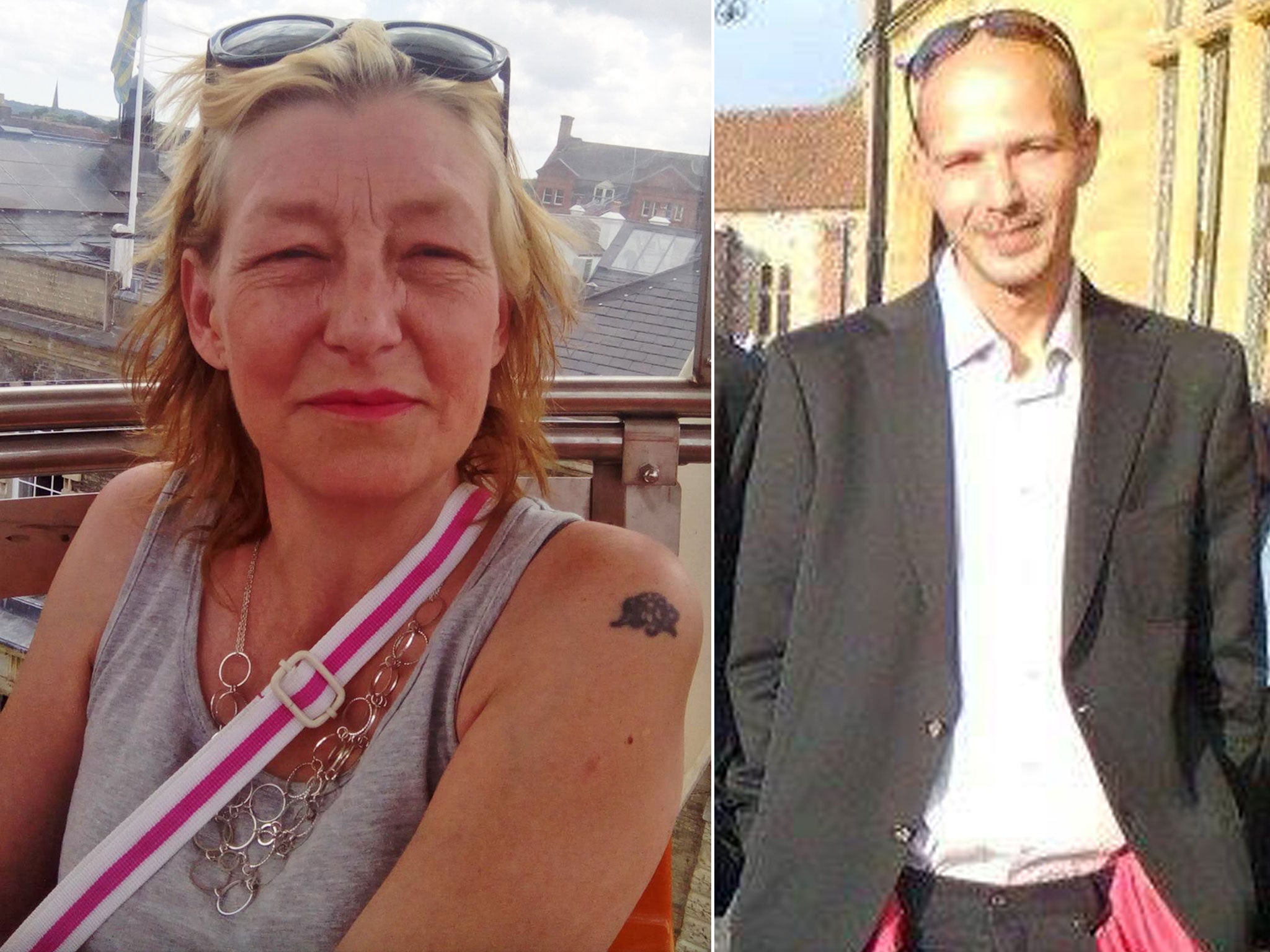Amesbury novichok incident: Car seized for testing in Swindon as investigation into poisoning widens
The Independent understands the vehicle was used by an emergency service worker who responded to the poisoning of Dawn Sturgess and Charlie Rowley
Police are hunting for the "container" they believe contained the novichok nerve agent that killed Dawn Sturgess and left her partner in critical condition.
Military personnel wearing protective clothing seized a car in Swindon overnight, covering it in plastic and lifting it onto a trailer to be removed.
Wiltshire Police confirmed the operation was linked to the Amesbury incident but they urged local residents “not to be alarmed”.
It came two days after a police officer presented to Swindon’s Great Western Hospital for testing amid fears they had been exposed to nerve agent.
The officer was given the all-clear and The Independent understands the white Audi removed from the town belongs to another emergency service worker who responded to the incident.
Police and public health officials will seek to address safety concerns at a public meeting in Amesbury tonight, amid shock over Ms Sturgess’ death.
The 44-year-old, who had three children, collapsed at her partner’s home in Amesbury on the morning of 30 June and died in Salisbury District Hospital eight days later.
Her partner, Charlie Rowley, fell ill hours later and remains in a critical condition.

Defence secretary Gavin Williamson blamed Russia for committing “an attack on British soil” over the latest poisonings, four months after Sergei Skripal and his daughter were targeted.
"The simple reality is that Russia has committed an attack on British soil which has seen the death of a British citizen,” he told MPs. "That is something that I think the world will unite with us in actually condemning."
The Kremlin has denied any involvement in the attack on former double agent Mr Skripal or the latest incident, claiming that linking Russia to the poisoning would be ”absurd“.
Novichoks were first developed by the Soviet Union in a covert programme later revealed by defectors, and one of its creators said the agents were too complicated for a non-state actor to have weaponised.
The Ministry of Defence is working with the police on the investigation and the clear-up operations, with 175 armed forces personnel involved.
Assistant Commissioner Neil Basu, the head of UK counterterror policing, confirmed that the main line of inquiry is whether Ms Sturgess and Mr Rowley came into contact with the same novichok used against the Skripals in March.
“Our focus and priority at this time is to identify and locate any container that we believe may be the source of the contamination,” he said earlier this week.
He added that the pair "must have got a high dose and our hypothesis is that they must have handled a container we are now seeking.”
A red Ford Transit van that Mr Rowley was a passenger in before falling ill has also been seized for “precautionary” testing at the Porton Down defence laboratory, and three other men who travelled in the van were screened but have no symptoms of nerve agent exposure.
More than 20 other people have presented to authorities with concerns but given the all-clear.
A bus that Ms Sturgess and Mr Rowley used to travel from Salisbury to his home in Amesbury night before they collapsed has also tested negative for novichok.
Police have cordoned off the couple’s homes and other areas they visited on 29 and 30 June as the investigation continues.
Central to the investigation is John Baker House, the supported-living accommodation where Ms Sturgess lived in Salisbury and the nearby Queen Elizabeth Gardens.
Officials said the couple had not visited areas of Salisbury that had been frequented by the Skripals and subsequently decontaminated.
Friends of Mr Rowley said he was known to forage for goods to fix and sell and he and Ms Sturgess are known to have collected discarded cigarettes.
Security services hope that tracing where they found the container could provide vital clues on the attack on Mr Skripal.
Police are yet to recover that item and Public Health England has warned against picking up “any strange items such as needles, syringes or unusual containers”.
Health officials have reiterated that the risk to the wider public remains low but the advice is being kept constantly under review.
Chief Constable Kier Pritchard, of Wiltshire Police, praised the “continual strength and resilience” of local residents and businesses.
“Whilst this remains an extraordinary time for Wiltshire, I have every confidence that the communities have the strength to pull through,” he added.
Home secretary Sajid Javid last week told MPs that Ms Strugess’ death “only strengthens our resolve to find out exactly what happened and who is behind it”.
Angus Macpherson, Police and Crime Commissioner for Wiltshire, said Ms Sturgess was an “innocent member of the public who should have been able to go about her daily life without becoming an unwilling victim in such an unprecedented, international, incident”.

